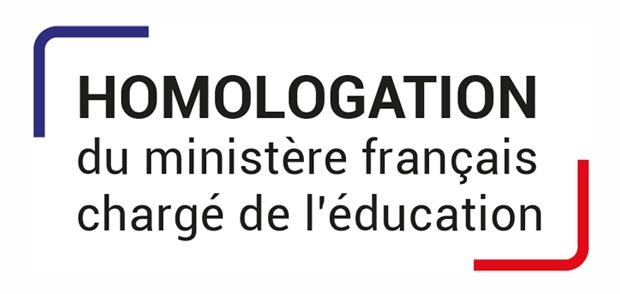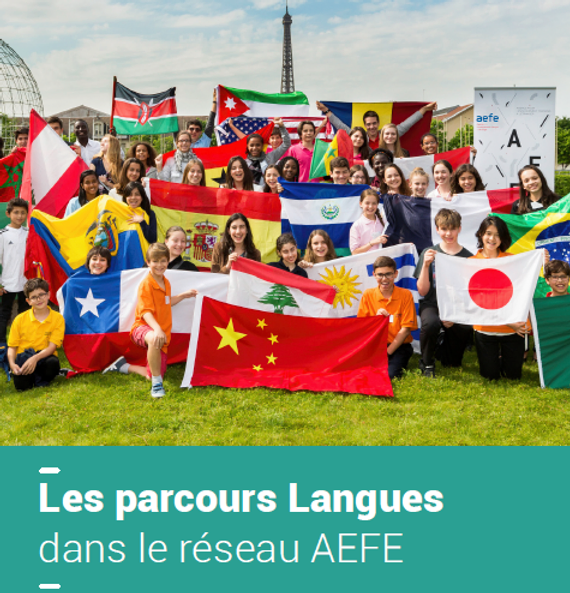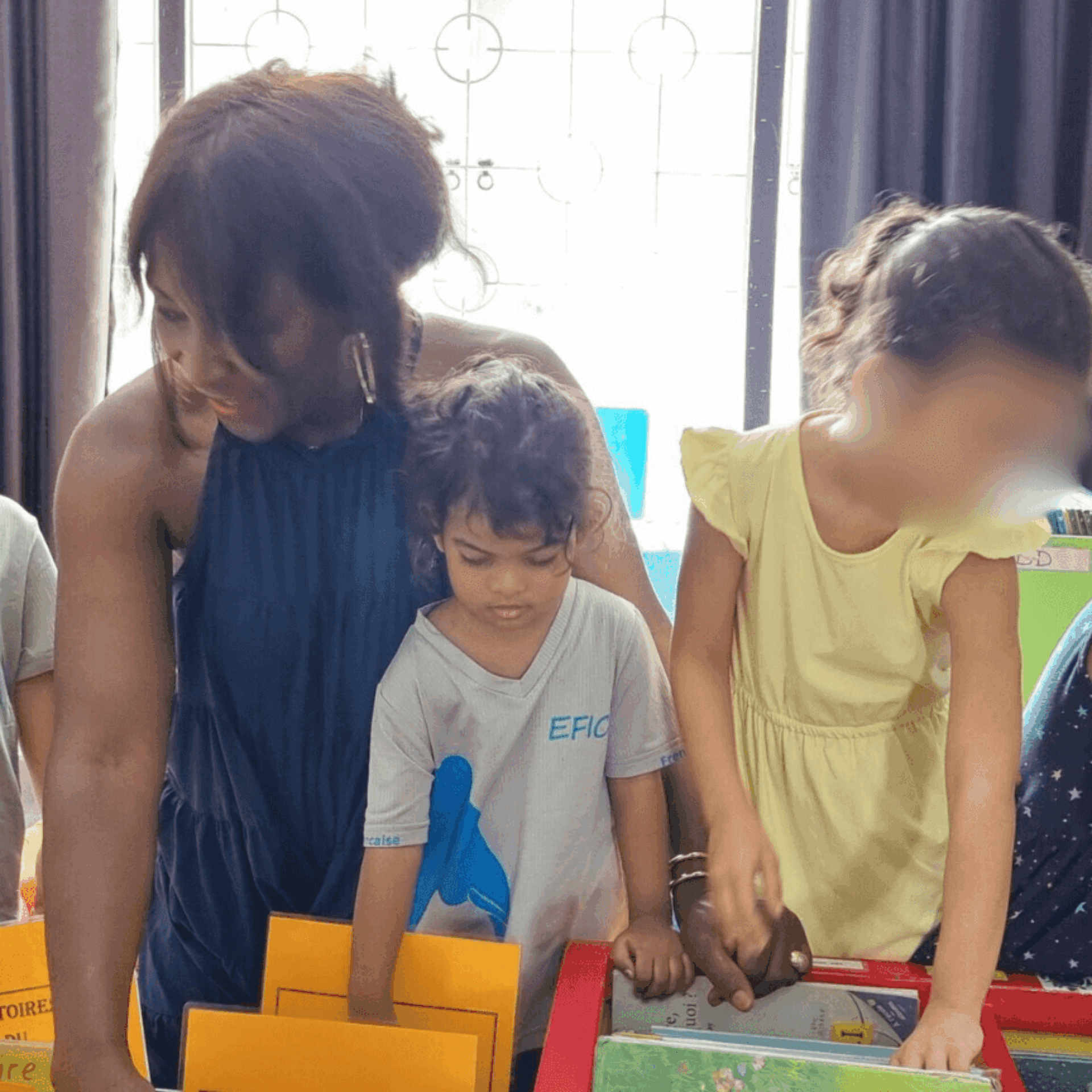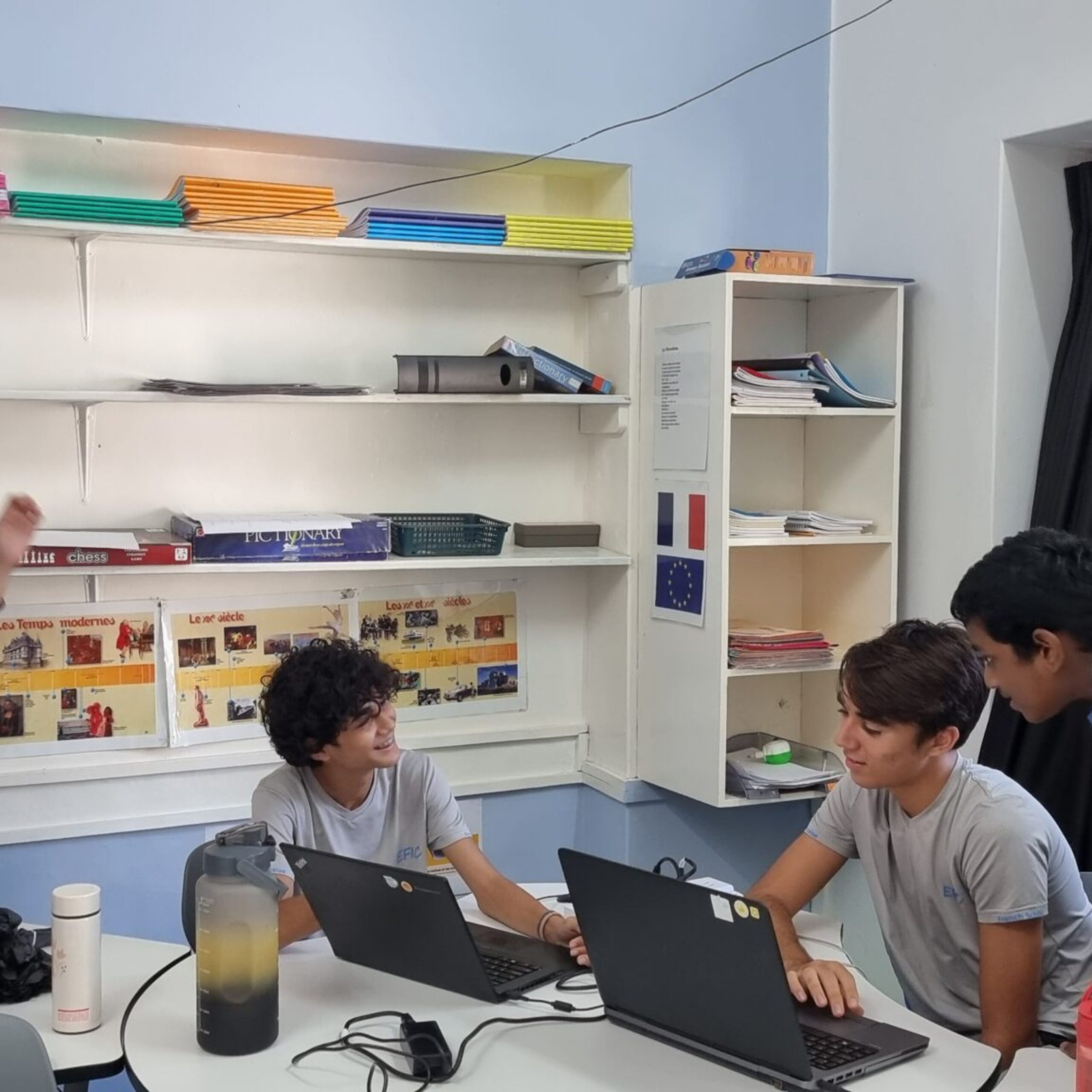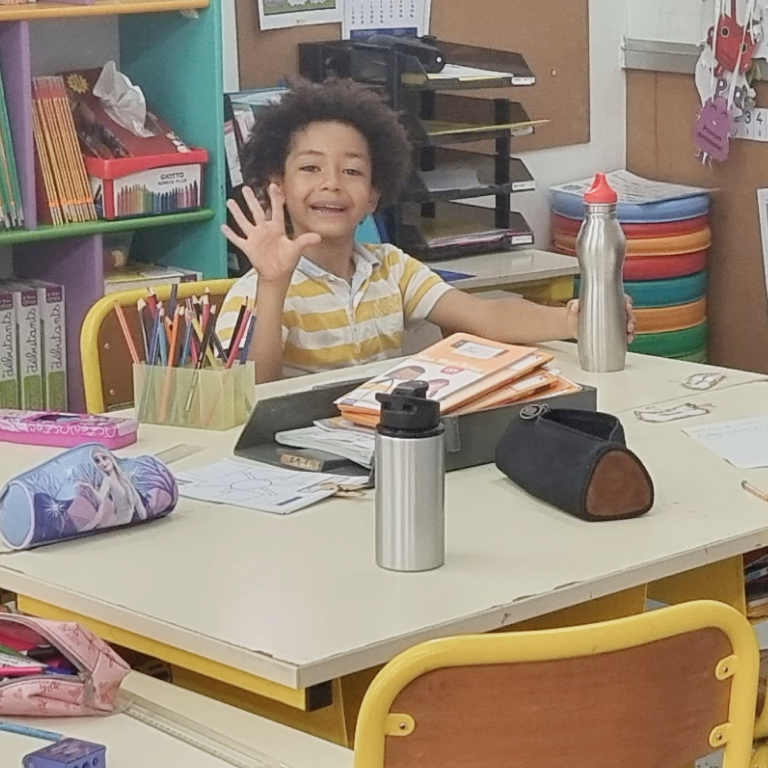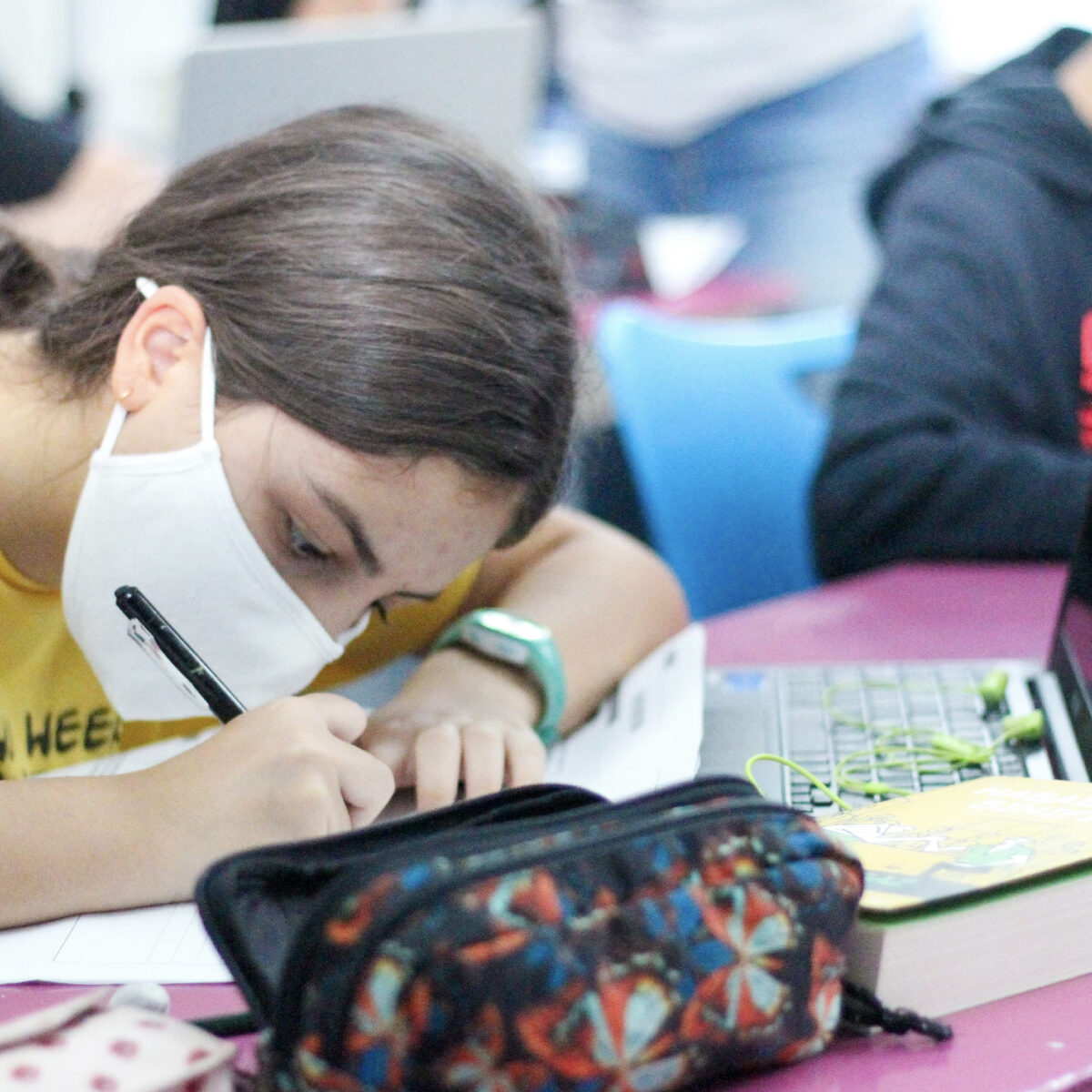French and English as teaching languages
Two-thirds of instruction is in French, and one-third in English. The bilingualism of the pupils being an objective for each end of schooling, the courses are adapted to an international audience, with a specific monitoring system in each class (see in particular the section on FFL below).
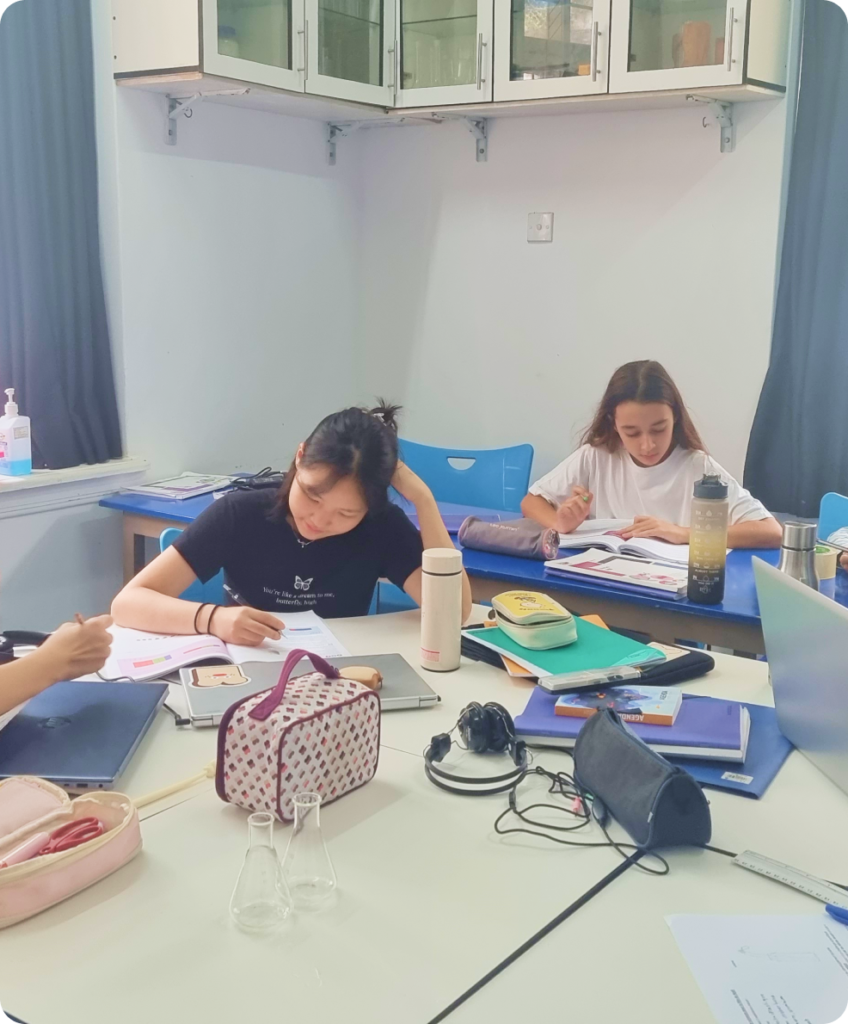
EFIC is a French school. It follows the official guidelines of the French Ministry of Education, which guarantees the quality of its teaching. The main language of instruction is, of course, French. However, it is unique in that it welcomes not only French students, but also Sri Lankan students and students of a dozen other nationalities whose parents trust the French education system.
EFIC’s ambition is to welcome these students by offering them a multilingual education that meets the demands of French and foreign families, but which is also an essential asset
for our students’ future studies. Our goal is for all our foreign students to master the French language perfectly so that they can follow the French school curriculum without any problems and prepare for the secondary school exams of the French education system.
But it is also true that our French and French-speaking students have a perfect command of the English language, which is essential for living in Sri Lanka but also for integrating into a world where English has become the language of international communication.
Bilingualism is therefore at the heart of our language program, with each student expected to be able to communicate naturally in both languages after a few months at EFIC. This program is based on two main pillars: the international section and the protocol for welcoming non-French-speaking students arriving at our school.
But we do not forget that our students live in Sri Lanka and need to learn the language and culture of their country of birth or host country. That is why all students from first grade onwards (aged six) receive one hour of Sinhalese lessons per week.
Finally, as in all French schools, learning a second foreign language is compulsory from seventh grade onwards (aged twelve), and it is possible to learn an additional language.
Finally, as in all French schools, learning another foreign language is compulsory from the 7th grade (students aged twelve) and learning an additional language is possible from the 10th grade (students aged
fifteen).
The international section
The EFIC elementary school officially became an international section teaching English (British) at the start of the school year in September 2025.
International sections, created in France in 1981, are centers of excellence. They provide enhanced foreign language instruction (nineteen languages are currently offered) as well as instruction in various subjects in that language.
The international sections have three objectives:
- Facilitate the integration of foreign students into the French school system;
- Create, thanks to the presence of foreign students, an environment conducive to French students learning a modern foreign language at a high level;
- Promote the transmission of the cultural heritage of the countries concerned.
These objectives are also those of the AEFE and, in particular, those of the EFIC. The language policy within the AEFE network promotes cultural dialogue, linguistic diversity, and respect for identities and differences.
In accordance with the AEFE’s PARLE program (adapted and reinforced foreign language courses), the EFIC’s international section offers enhanced English language teaching (3.5 hours in cycle 2 and 4.5 hours in cycles 3 and 4, instead of 1.5 hours in France) as well as
teaching another subject in English for 3 hours per week.
A partnership with the British Council enables all our students from CE1 (seven-year-olds) onwards to take Cambridge University exams and tests.
Projects involving both languages are also organized throughout the year: arts, sports, science, reading/writing projects, science day, performances, etc.
Welcoming new French-speaking students
Since the start of the 2025 school year, EFIC has implemented a reinforced protocol for non-French-speaking students, designed to enable them to acquire sufficient proficiency in French within a few months to follow their entire schooling at our institution.
They are initially placed in classes with children of their own age who are French speakers, allowing them to immerse themselves in the French language. This is a very effective method for children, who learn foreign languages quickly in natural communication situations. Of course, the class teacher takes care to support non-French-speaking students so that they feel as comfortable as possible
among their classmates.
But at the same time, while French-speaking students attend French as a mother tongue classes, their new French-speaking classmates benefit from French classes known as “schooling (FLSco) in order to quickly acquire the basics of the language, both spoken and written, enabling them to integrate perfectly into their class and, throughout the year, to progress so that they gradually have no more problems with comprehension and expression in their class. These French language classes are taught by a specialized teacher who maintains regular contact with parents so that they can follow their child’s progress in French throughout the year.
A charter for parents of new French-speaking students explains the entire process. In addition, at the very beginning of the school year, the FLSco specialist teacher works with parents to set up a personalized program that allows them to monitor their child’s progress in French throughout the year.
Finally, these students are offered the opportunity to take the DELF (diplôme d’études en langue française) exams organized by the Alliance Française in Colombo. The different DELF levels correspond to those of the Common European Framework of Reference for Languages (CEFR), which defines six
levels of language proficiency, from beginner (A1) to C2 (perfect mastery).
APPENDIX:
– Charter for parents of non-French-speaking students
– Charter for parents of non-French-speaking students
Other languages taught in class

In addition to this direct teaching, students can learn another language independently through the CNED.


